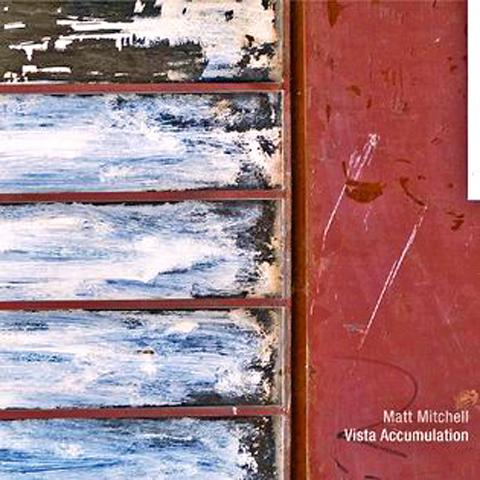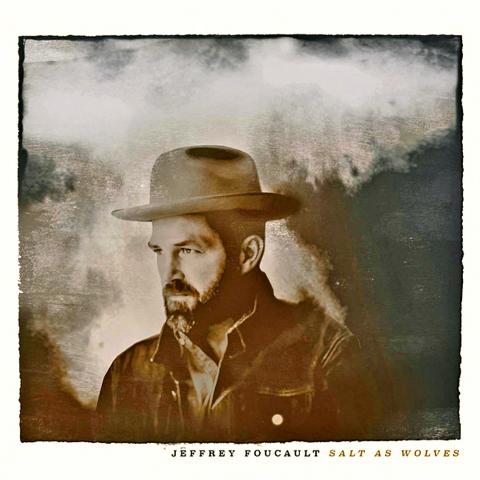Vista Accumulation, Matt Mitchell, Pi Recordings
The final track on the pianist Matt Mitchell’s rigorous, exhausting-but-worth-it new album, Vista Accumulation, sprawls to an eventful 12-and-a-half minutes, and feels at times as if it might never run out of steam. Its title is The Damaged Center, which could be a jab at the idea of a recognizable jazz mainstream — or a nod to its own destabilized core.
What it conveys about Mitchell is his fondness for pressurized tensions, especially the one between intricate form and extemporaneous license. Over the last five or six years, he has been a crucial partner for composer-bandleaders in this vein: He appears on four excellent jazz albums this year, by Tim Berne, Rudresh Mahanthappa, Dave Douglas and Darius Jones. (One of these, Mahanthappa’s Bird Calls, was named best album in the DownBeat Critic’s Poll.)

But Mitchell’s advanced vocabulary as a pianist seems almost like an afterthought on Vista Accumulation, which plays out across two discs, and might best be experienced with a brief intermission. The album features a superacute quartet with Chris Speed on tenor saxophone and clarinet, Chris Tordini on bass and Dan Weiss on drums, and Mitchell’s writing puts them through their paces. Even in its quieter stretches, like most of Hyper Pathos and the album’s opener, Select Your Existence, the music simmers with deep intensity.
With an average length of 12 minutes, these tracks resemble miniature epics, conforming to no clear standard of repetition. Instead, Mitchell’s playbook leans on long thematic arcs, slithery polytonality, rhythmic caginess and a chamber-like internal logic that carries over to the practice of group improvisation. Even when the action gets prickly, it doesn’t feel arbitrary.
Speed is key to this equilibrium: His output is expressive and hale, with a breathy blur that nicely offsets the weblike precision of Mitchell’s lines. Wearing the Wig of Atrophy begins as a splintered-funk confrontation featuring Speed on tenor saxophone; by song’s end, he has switched to clarinet, joining the rest of the band in a balladic section that evokes the sensation of walking slowly into a darkened room, waiting for the eyes to adjust.

— Nate Chinen, NY Times News Service
All We Need, Raury, Columbia
Pharrell Williams and Kanye West have done untold work over the last decade and a half toward expanding hip-hop’s purview, helping to reconcile the political questioning and sociocultural searching of the 1980s with the manic excess and shameless posturing of the 1990s. Thanks to them, thoughtfulness and ostentation finally went hand in hand — one didn’t have to trade one revolution for the other.

The arrival of Raury may mark the beginning of the inevitable reversal of that movement.
A hip-hop-generation shaman with an alert sense of musical history and a fearless humility, Raury isn’t interested in rejecting the hard-fought innovations of the generations just above him, but rather has mainlined them so thoroughly that he’s able to remold them.
All We Need, his second album, is full of confidently expressed delicateness. This is folk music refracted through hip-hop sensibilities, an aesthetic that suggests that not all the post-rap tributaries have been explored yet.
From the beginning of this album, Raury is earnest and aggrieved — he begins by lamenting consumerism and income inequality, in a voice that’s part tense rapping and part wistful singing. Then he swings toward songs about emotional connections, be it the wide-eyed Mama; or Love Is Not a Four Letter Word, an aggrieved spoken rant aimed at a woman who has let him down; or Woodcrest Manor II, about a friendship riven by time and mistrust.
Throughout, Raury is backed by a melange of space-soul and soft rock produced largely by Malay, who cut his teeth refining his brand of earthy romanticism with Frank Ocean. This Woodstock-era approach feels like the logical result of the last generation of hip-hop outsiders subjected to several years’ erosion by the elements — think Andre 3000’s Prototype, or the scrappier songs on the first N.E.R.D. album, or the way early records by A Tribe Called Quest had a palpable air hiss to them.
Even as Raury oozes naturalist, hippieish energy, he manages to remain playful — not humorous, but almost childlike. He sees the flaws of the world around him and raises his hand, volunteering to make the first change. He’s the type of artist who, when he performed on The Late Show With Stephen Colbert the same night Donald Trump was a guest, wore a shirt with Trump’s name crossed out. The ostentation he grew up around could be deafening, so instead, Raury has taken what was handed to him and, from it, made his own Walden Pond.
— Jon Caramanica, NY Times News Service
Salt as Wolves , Jeffrey Foucault, Blueblade Records
On Salt as Wolves, the singer-songwriter-producer Jeffrey Foucault sings in a rich, textured, word-smearing voice about subjects of burned-out middle age: love, lying, regret, highways, hauntings, escape, aloneness, forgiveness, the value of a simple thing, the void without it. In a writerly surge in the song Des Moines, about a musician’s unremarkable night on the road, he remembers “the goner’d streets and dying/sunset buildings/cut with shade.” Foucault, who comes from Wisconsin and lives in western Massachusetts, is only 39. He’s a bit too good.
Behind him slithers guitarist Bo Ramsey, with his warm, amplifier-tremolo pulsations; unobtrusive, Zen-like bassist Jeremy Moses Curtis; drummer Billy Conway, making wet, slow beats with brushes; and the shadow harmonies of singer Caitlin Canty. The music flexes and rustles. It’s got open space. It implies simplicity and free will.
No way. This is some of the least simple and free music in the world. Salt as Wolves — his fifth album of original songs, and its title derived from Iago’s speech in Act III of Othello — is immaculately tailored within a certain tradition. (That tradition descends from the musical language of 1950s single-chord blues and three-chord country, as routed later through Townes Van Zandt and the bardic post-folk line that followed him.) It is aesthetically informed up to the eyes. It sounds casual, but it can grow oppressive quickly.
At worst, he’s laconic until he’s philosophical, and philosophical until he’s mythical. He invokes the silent watches of the night in pre-electronic American consciousness and uses laden images to do it — “a heart like a hurricane lamp,” “shepherd of cigarettes and gasoline.” But he doesn’t have to go all the way there. Sometimes his songs run right up to the edge of the grandiose and hold still, and that’s when he’s best.
Des Moines, close to perfection, does that. I Love You (And You Are a Fool) makes its case quickly and clearly. And Take Your Time, neither haunted nor mythic, flushes out some of the record’s mannered feeling. “Walk away there’s no rush,” he sings, surprisingly. “Everything is going to be just fine.”
— Ben Ratliff, NY Times News Service

In the March 9 edition of the Taipei Times a piece by Ninon Godefroy ran with the headine “The quiet, gentle rhythm of Taiwan.” It started with the line “Taiwan is a small, humble place. There is no Eiffel Tower, no pyramids — no singular attraction that draws the world’s attention.” I laughed out loud at that. This was out of no disrespect for the author or the piece, which made some interesting analogies and good points about how both Din Tai Fung’s and Taiwan Semiconductor Manufacturing Co’s (TSMC, 台積電) meticulous attention to detail and quality are not quite up to

April 21 to April 27 Hsieh Er’s (謝娥) political fortunes were rising fast after she got out of jail and joined the Chinese Nationalist Party (KMT) in December 1945. Not only did she hold key positions in various committees, she was elected the only woman on the Taipei City Council and headed to Nanjing in 1946 as the sole Taiwanese female representative to the National Constituent Assembly. With the support of first lady Soong May-ling (宋美齡), she started the Taipei Women’s Association and Taiwan Provincial Women’s Association, where she

Chinese Nationalist Party (KMT) Chairman Eric Chu (朱立倫) hatched a bold plan to charge forward and seize the initiative when he held a protest in front of the Taipei City Prosecutors’ Office. Though risky, because illegal, its success would help tackle at least six problems facing both himself and the KMT. What he did not see coming was Taipei Mayor Chiang Wan-an (將萬安) tripping him up out of the gate. In spite of Chu being the most consequential and successful KMT chairman since the early 2010s — arguably saving the party from financial ruin and restoring its electoral viability —

It is one of the more remarkable facts of Taiwan history that it was never occupied or claimed by any of the numerous kingdoms of southern China — Han or otherwise — that lay just across the water from it. None of their brilliant ministers ever discovered that Taiwan was a “core interest” of the state whose annexation was “inevitable.” As Paul Kua notes in an excellent monograph laying out how the Portuguese gave Taiwan the name “Formosa,” the first Europeans to express an interest in occupying Taiwan were the Spanish. Tonio Andrade in his seminal work, How Taiwan Became Chinese,